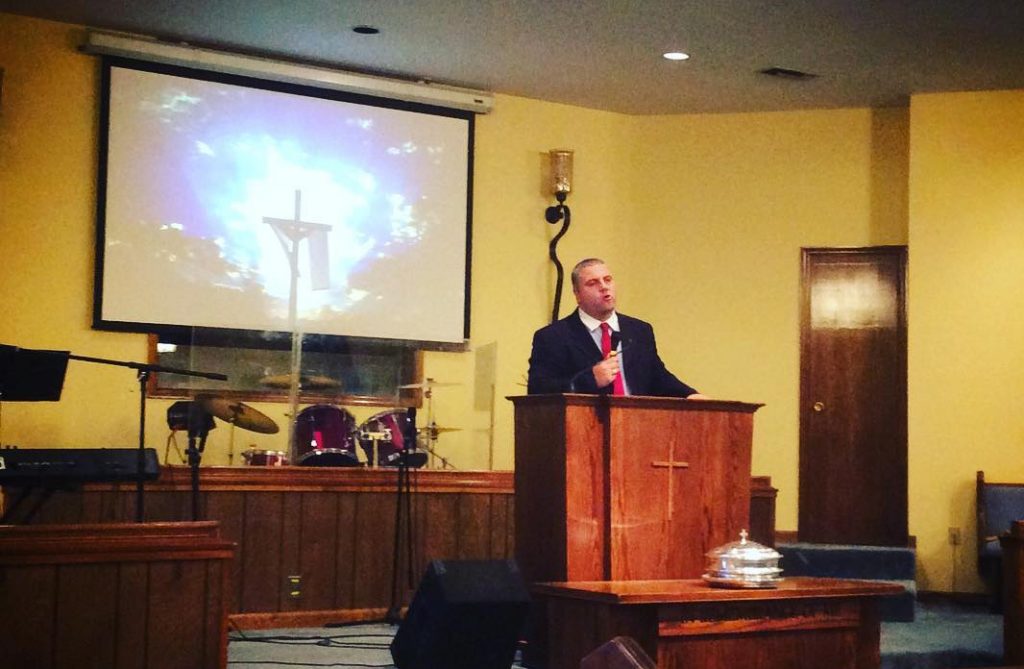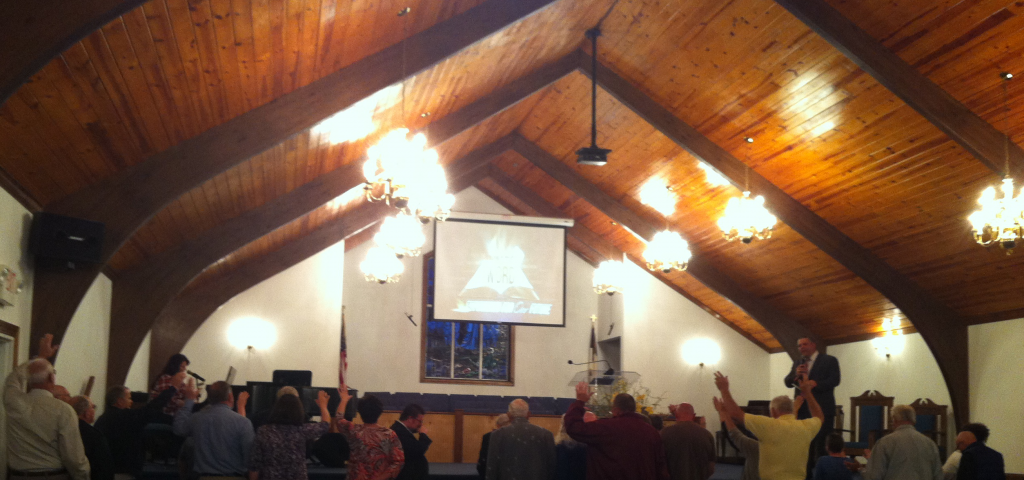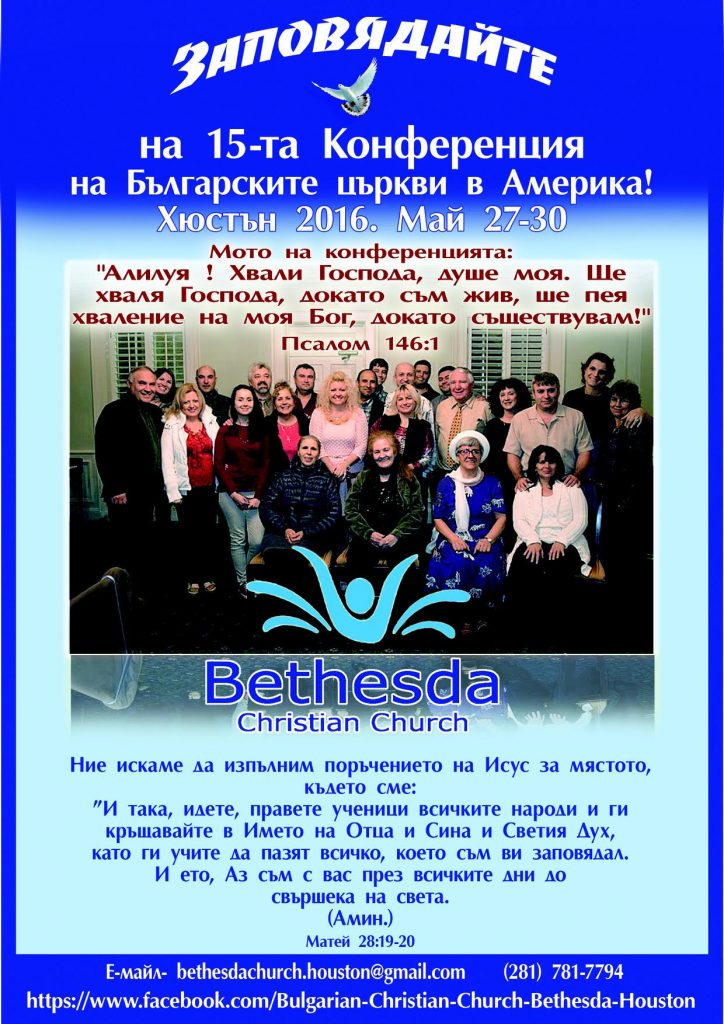We Shall Never Forget
Ministering in Bellshire
Bulgaria to ban all foreign preachers
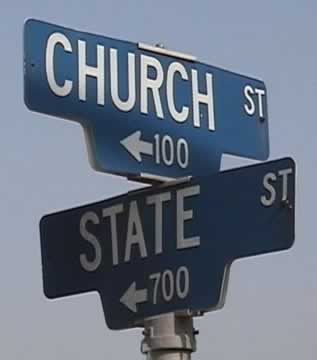 The Patriotic Front, a newly established political formation in Bulgaria, filed changes to the 2002 Religious Dominations Act last Thursday. The new measure bans all foreign citizens from preaching on the territory of Bulgaria, as well as preaching in any other language than Bulgarian.
The Patriotic Front, a newly established political formation in Bulgaria, filed changes to the 2002 Religious Dominations Act last Thursday. The new measure bans all foreign citizens from preaching on the territory of Bulgaria, as well as preaching in any other language than Bulgarian.
The draft amendments also foresee banning foreign organizations, companies and citizens from providing funding or donating to Bulgarian religious denominations. All the religious denominations in Bulgaria will be obliged to perform their sermons, rituals and statements only in Bulgaria. One year’s time will be given to translate religious books into Bulgarian.
Financially, the draft laws would ban not only foreign physical and legal entities from funding Bulgarian religious institutions, but also companies with foreign ownership that are legally registered in Bulgaria. Using state funding for “illegal activities” by religious denominations will be sanctioned with prison terms of three to six years. With these sanctions in mind, the new legal measure embodies the following rationale:
- Churches and ministers must declare all foreign currency money flow and foreign bank accounts
- Participation of foreign persons in the administration of any denomination is strictly forbidden
- Foreign parsons shall not be allowed to speak at religious meetings in any way shape or form especially religious sermons
- Anonymous donations and donorship to religious organization is not permitted
- Bulgarian flag shall be present in every temple of worship
- The new measure will block all foreign interference in the faith confessions and denominations in Bulgaria
An Urgent Call for Chaplain Ministry on the Balkans
 Our ministry has been working in the country of Bulgaria for over 25 years now. During this time we have ministered in over 300 local congregations across the country. While we do a lot of ministry in the capital Sofia, we are even more often on the road evangelizing in remote locations. When we minister in Bulgaria we do 3-5 services on any given Sunday. Additionally, we travel to teach and minister to various local churches during the week.
Our ministry has been working in the country of Bulgaria for over 25 years now. During this time we have ministered in over 300 local congregations across the country. While we do a lot of ministry in the capital Sofia, we are even more often on the road evangelizing in remote locations. When we minister in Bulgaria we do 3-5 services on any given Sunday. Additionally, we travel to teach and minister to various local churches during the week.
With this vision in mind, over a decade ago we organized and established the Bulgarian Chaplaincy Association as a Christian ministry outside of the church walls. Today, our first responder chaplains trained by our Masters of Chaplaincy Ministry Program face extreme conditions on the Balkans and in Europe as follows:
7/2016 – Christians pay price as extreme Islam surges after attempted coup in Turkey
6/2016 – 30+ people were killed in an attack at Ataturk International Airport by three suicide bombers
3/2016 – 31 people are killed and 150 injured in three explosions at the Brussels airport
11/2015 – 130 people killed in a series of attacks by gunmen and suicide bombers at Paris stadium
1/2015 – 11 killed after attack on Paris offices of satirical newspaper Charlie Hebdo
5/2014 – 4 killed at the Jewish Museum in Brussels
Also important [click to read]:
- U.S. Department of State recognizes our chaplaincy efforts in Bulgaria
- Bulgarian Chaplaincy Association: Integration Proposal with Local NATO Programs
- Bulgarian Chaplaincy Association: Vision and Resolution
- Chronology of our role and involvement in developing Church of God chaplaincy in Bulgaria since 2001
- Master’s of Chaplaincy Ministry Program in Bulgaria Reflections
- The Past Decade of Chaplaincy in Bulgaria (2006-2016)
- Related Publications and Presentations by Cup & Cross Ministries International
Ministering at Cheraw
Establishment of the Bulgarian Chaplaincy Association (2001-2006)
 We are proud to announce that the Master’s of Chaplaincy Ministry Program, we designed and launched in Bulgaria in 2006, has been selected to be part of the Social Service Program of New Bulgarian University. After being for years a valuable part of the regular curriculum of the Bulgarian Evangelical Theological Institute and the St. Trivelius Institute in the capital Sofia, the chaplaincy program has received the highest level of recognition as successful graduates will be finally able to receive government recognized degrees and apply their knowledge and training in chaplaincy on a professional level. The chaplaincy program can also serve within the Integration Proposal of local NATO programs and be instrumental in dealing with the enormous wave of Middle East migrants crossing through Bulgaria today.
We are proud to announce that the Master’s of Chaplaincy Ministry Program, we designed and launched in Bulgaria in 2006, has been selected to be part of the Social Service Program of New Bulgarian University. After being for years a valuable part of the regular curriculum of the Bulgarian Evangelical Theological Institute and the St. Trivelius Institute in the capital Sofia, the chaplaincy program has received the highest level of recognition as successful graduates will be finally able to receive government recognized degrees and apply their knowledge and training in chaplaincy on a professional level. The chaplaincy program can also serve within the Integration Proposal of local NATO programs and be instrumental in dealing with the enormous wave of Middle East migrants crossing through Bulgaria today.
T he Bulgarian Chaplaincy Association was envisioned in the summer of 2001 to unite all underground chaplaincy workers within the territory of Bulgaria. This included several ministries already active in Bulgaria serving in various contexts like military, healthcare, benevolence, jail system and commercial marine. The main goal was to establish a context in which all of these ministries could come together and be represented before the Bulgarian churches and government.
he Bulgarian Chaplaincy Association was envisioned in the summer of 2001 to unite all underground chaplaincy workers within the territory of Bulgaria. This included several ministries already active in Bulgaria serving in various contexts like military, healthcare, benevolence, jail system and commercial marine. The main goal was to establish a context in which all of these ministries could come together and be represented before the Bulgarian churches and government.
Although various other projects in the area of Bulgarian chaplaincy had been undertaken in previous years, the foundation initiative was formed in response to an invitation of the Church of God Chaplaincy Commission to hold a training seminar in the National Palace in the capital, Sofia in the fall of 2001. Due to the September 11th crises, the seminar was postponed and held February 16-23, 2002 under the patronage of the Bulgarian Church of God. More than 60 people, actively involved in military, hospital and prison ministries, students and church members, attended the lectures. The seminar was a stepping stone for the development of the Bulgarian Chaplaincy Association. Similar seminars were held consecutively in 2003-2004 in various locations.
The following strategic actions continued the endeavor. On August 13, 2005 a regional meeting in the Sliven area discussed the implementation of future strategies in the light of NATO’s decision to place airbases on Bulgarian soil. Individual and group meetings with chaplains from various professional fields and geographical regions followed.
Additionally, a national training seminar was held in Veliko Turnovo on October 8, 2005 where ten regional chaplaincy ministries were represented. The major issues discussed were (1) media presentation of the chaplaincy work before the major evangelical denominations in Bulgaria and the secular society, (2) dealing with stress-related issues at the work place, (3) system restructuring to meet the needs of the growing ministry and (4) the mandatory legal affairs currently restricting chaplaincy in Bulgaria. The participants discussed and approved a six-month national agenda toward solving the above problems and developing timely practical solutions. A priority on the list was the presentation of chaplaincy ministry before Bulgarian evangelical denominations.
The presentation was successfully achieved October 18, 2005 before the national leadership of the Bulgarian Evangelical Alliance. Three educational levels were proposed in the area of chaplaincy: candidate chaplains, church and government.
A consecutive regional meeting on October 23, 2005 in Nova Zagora addressed current dilemmas and outlined the necessary steps to complete the above educational strategy. The first goal was to develop a basic chaplaincy course for the Bulgarian Evangelical Theological Institute. The course was designed in the winter of 2005-2006 and after a series of meetings with denominational leaders and educational representatives, was submitted to the board of directors of the Bulgarian Evangelical Theological Institute on June 12, 2006. Prior to its submission, the course was presented in a pilot form to the regional directors of the Ministry to the Military at a training seminar in Veliko Tarnovo on April 8-10, 2006. The basic chaplaincy course designed by the Bulgarian Chaplaincy Association was scheduled to be taught in the fall semester of 2006 and plans were set to include it in the larger scope of the master’s level chaplaincy program with the Bulgarian Evangelical Theological Institute in 2007.
After much anticipation, on August 19, 2006 in the city of Yambol, the Bulgarian Chaplaincy Association called a founders meeting to discuss its legalization by the Bulgarian government. Active chaplains from various fields, ministers, pastors and scholars were present at the meeting to represent over 200 Bulgarians nationally involved in chaplaincy ministry. An official resolution was accepted and signed by the delegates to become the establishing document of the Bulgarian Chaplaincy Association. With this event, the Bulgarian Chaplaincy Association, which began in 2001 and has been instrumental in creating, recognizing and implementing such opportunities for ministry in the military as well as other fields of chaplaincy, has begun its final approach toward becoming a legal non-government organization active within the territory of Bulgaria.
Also important [click to read]:
- U.S. Department of State recognizes our chaplaincy efforts in Bulgaria
- Bulgarian Chaplaincy Association: Integration Proposal with Local NATO Programs
- Bulgarian Chaplaincy Association: Vision and Resolution
- Chronology of our role and involvement in developing Church of God chaplaincy in Bulgaria since 2001
- Master’s of Chaplaincy Ministry Program in Bulgaria Reflections
- The Past Decade of Chaplaincy in Bulgaria (2006-2016)
- Related Publications and Presentations by Cup & Cross Ministries International
The Restoration of Chaplaincy in Bulgaria (History of Events)
 We are proud to announce that the Master’s of Chaplaincy Ministry Program, we designed and launched in Bulgaria in 2006, has been selected to be part of the Social Service Program of New Bulgarian University. After being for years a valuable part of the regular curriculum of the Bulgarian Evangelical Theological Institute and the St. Trivelius Institute in the capital Sofia, the chaplaincy program has received the highest level of recognition as successful graduates will be finally able to receive government recognized degrees and apply their knowledge and training in chaplaincy on a professional level. The chaplaincy program can also serve within the Integration Proposal of local NATO programs and be instrumental in dealing with the enormous wave of Middle East migrants crossing through Bulgaria today.
We are proud to announce that the Master’s of Chaplaincy Ministry Program, we designed and launched in Bulgaria in 2006, has been selected to be part of the Social Service Program of New Bulgarian University. After being for years a valuable part of the regular curriculum of the Bulgarian Evangelical Theological Institute and the St. Trivelius Institute in the capital Sofia, the chaplaincy program has received the highest level of recognition as successful graduates will be finally able to receive government recognized degrees and apply their knowledge and training in chaplaincy on a professional level. The chaplaincy program can also serve within the Integration Proposal of local NATO programs and be instrumental in dealing with the enormous wave of Middle East migrants crossing through Bulgaria today.
05/12 Anticipated Date for Graduation of the First Cohort of Master’s Program of Chaplaincy Ministry in Bulgaria
2011
09/11 – Master’s of Chaplaincy Ministry Program Module 3: Counseling Completed
07/11 – Master’s of Chaplaincy Ministry Program Module 2: Theology Completed
03/11 – Master’s of Chaplaincy Ministry Program approved by the Educational Committee of the Bulgarian Evangelical Theological Institute
01/11 – Master’s of Chaplaincy Ministry Program Continues
2010
10/10 – Master’s of Chaplaincy Ministry Program Module 1: Chaplaincy Completed
09/10 Master’s of Chaplaincy Ministry Program begins in Sofia, Bulgaria
06/10 Chaplaincy Conference and Master’s of Chaplaincy for Bulgaria
01/10 Proposal masters program finalized and submitted for approval to the Educational Committee of the Bulgarian Evangelical Theological Institute
2009
10/09 Bulgarian Chaplaincy Association holds an introductory chaplaincy course in Yambol, Bulgaria
2008
12/08 Family Seminar for Military Men and Women held in Yambol
11/08 Bulgarian Chaplaincy Association Annual Meeting
09/08 – Bulgarian Chaplaincy Associations noted in Church of God publications
06/08 – The Case of a NATO Chaplaincy Model within the Bulgarian Army released
06/08 – Celebrating 10 Years of Military Ministry in Bulgaria
2007
10/07 – Bulgarian Chaplaincy Associations Recognized by U.S. Department of State
07/07 – National Chaplaincy Conference in Yambol, Bulgaria
03/07 – Bulgarian Chaplaincy Association was officially registered
02/07 – Bulgarian Chaplaincy Association gains legal status
01/07 – Bulgarian Chaplaincy Assassination noted by international religious freedom watch dog Forum 18
2006
12/06 – Registration Rejected Bulgarian Chaplaincy Association by Bulgarian court
11/06 – A master program in chaplaincy ministry has been proposed for the Bulgarian Evangelical Theological Institute in Sofia
10/06 – Bulgarian Chaplaincy Association Founder’s Meeting in Sofia, Bulgaria
10/06 – A contextualized course for chaplaincy ministry is offered at the Bulgarian Evangelical Theological Institute in Sofia
08/06 – Bulgarian Chaplaincy Association’s Resolution No. 1 sets course toward chaplaincy in churches, education and government institutions
07/06 – National Chaplaincy Meeting in Yambol, Bulgaria
06/06 – Meeting with NATO Chaplains
05/06 – Cup & Cross Ministries submitted a research paper to NATO’s Manfred Wörner Foundation dealing with the case of underground chaplaincy within the Bulgarian Armed Forces
03/06 – A contextualized course for chaplaincy ministry was offered in Veliko Turnovo
02/06 – www.kapelanstvo.com was released to serve as the official website of the chaplaincy movement in Bulgaria
2005
10/05 – A national training seminar held in Veliko Turnovo
10/05 – The Bulgarian Chaplaincy Association was presented before the Bulgarian Evangelical Alliance
09/05 – Regional meeting in Nova Zagora which addressed the current issues
08/05 – A regional chaplaincy meeting in Sliven
07/05 – Publication of camouflage New Testaments and Bibles, some of which we distributed to Bulgarian army personal including the divisions currently serving in Iraq.
Also important [click to read]:
- U.S. Department of State recognizes our chaplaincy efforts in Bulgaria
- Bulgarian Chaplaincy Association: Integration Proposal with Local NATO Programs
- Bulgarian Chaplaincy Association: Vision and Resolution
- Chronology of our role and involvement in developing Church of God chaplaincy in Bulgaria since 2001
- Master’s of Chaplaincy Ministry Program in Bulgaria Reflections
- The Past Decade of Chaplaincy in Bulgaria (2006-2016)
- Related Publications and Presentations by Cup & Cross Ministries International
15th Annual Conference of Bulgarian Churches in North America Building Bridges to Church and People in Bulgaria
GO!
MARK 16:15-18 in the original King James Version of the Bible
15 And he said vnto them, Goe yee into all the world, and preach the Gospel to euery creature.
16 He that beleeueth and is baptized, shalbe saued, but he that beleeueth not, shall be damned.
Pentecost Sunday 2016
Offering a few recent Pentecostal articles in light of the upcoming Pentecost Sunday celebration: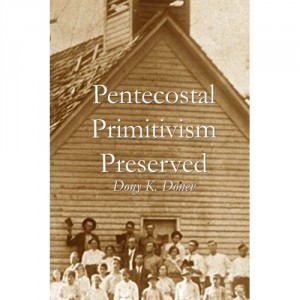
- The Forgotten Azusa Street Mission: The Place where the First Pentecostals Met
- Diamonds in the Rough-N-Ready Pentecostal Series (Complete)
- 95th anniversary of the Pentecostal movement in Bulgaria
- Toward a Pentecostal Solution to the Refugee Crises in the European Union
- Historical and Doctrinal Formation of Holiness Teachings and Praxis among Bulgarian Pentecostals
- Pacifism as a Social Stand for Holiness among Early Bulgarian Pentecostals
- The Practice of Corporate Holiness within the Communion Service of Bulgarian Pentecostals
- Sanctification and Personal Holiness among Early Bulgarian Pentecostals
- First Pentecostal Missionaries to Bulgaria (1920)
- Historical and Doctrinal Formation of Holiness Teachings and Praxis among Bulgarian Pentecostals
- The Everlasting Gospel: The Significance of Eschatology in the Development of Pentecostal Thought
- Online Pentecostal Academic Journals
- What made us Pentecostal?
- Pentecostalism and Post-Modern Social Transformation
- Obama, Marxism and Pentecostal Identity
- Why I Decided to Publish Pentecostal Primitivism?
- Historic Pentecostal Revival Tour in Bulgaria Continues
- The Land of Pentecostals
- Pentecostal Theological Seminary Address
- A Truly Pentecostal Water Baptism



